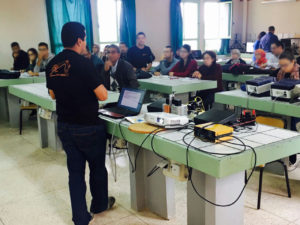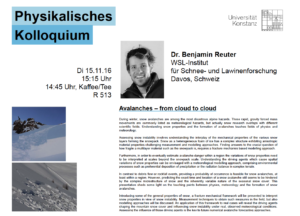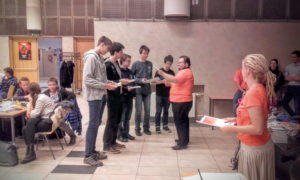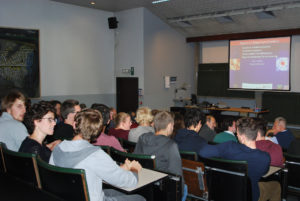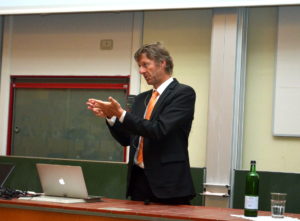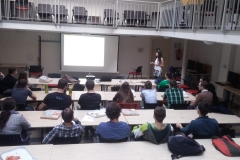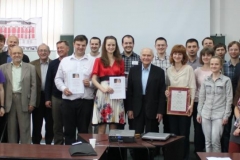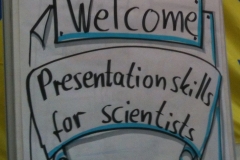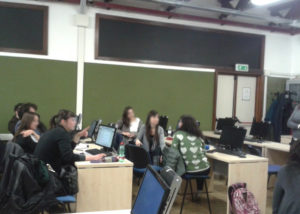 On March the 3rd and the 4th at University “La Sapienza” Physics Department was held the workshop on scientific writing “Laboratorio di scrittura divulgativa” .
On March the 3rd and the 4th at University “La Sapienza” Physics Department was held the workshop on scientific writing “Laboratorio di scrittura divulgativa” .
The workshop, mainly addressed to PhD students in scientific subjects (physics, chemistry, biology), was intended to give to the participants the basic tools on the non-academic scientific writing: the students would learn how to write articles for the general public instead of papers for the academic community.
To achieve this aim, the workshop was held by Manuela Cirilli and Massimiliano Razzano, both physicists and science communicators. Manuela Cirilli, in fact, is a particle physicists who works in the Knowledge Transfer Group of CERN, while Massimiliano Razzano is an astrophysicists and a professional journalist who writes for some of the most popular italian newspapers.
The workshop was divided in two days corresponding to two main parts. During the first part there was a theoretical introduction about the scientific communication in general, with a particular focus on the non-academic scientific writing. The second part of the workshop was instead more practical, because the participants were asked to become journalists themselves: under the guidance of the teachers, the students simulated an editorial meeting and wrote their own scientific articles. In this way, they learned not only how to present to the general public their scientific work in a more intriguing way, but also how to interact with the editorial staff.
This year we organised also a social event at the end of the course, in collaboration with the “Assaggi” bookstore, to present section activities to physics student and increase the section active members.

